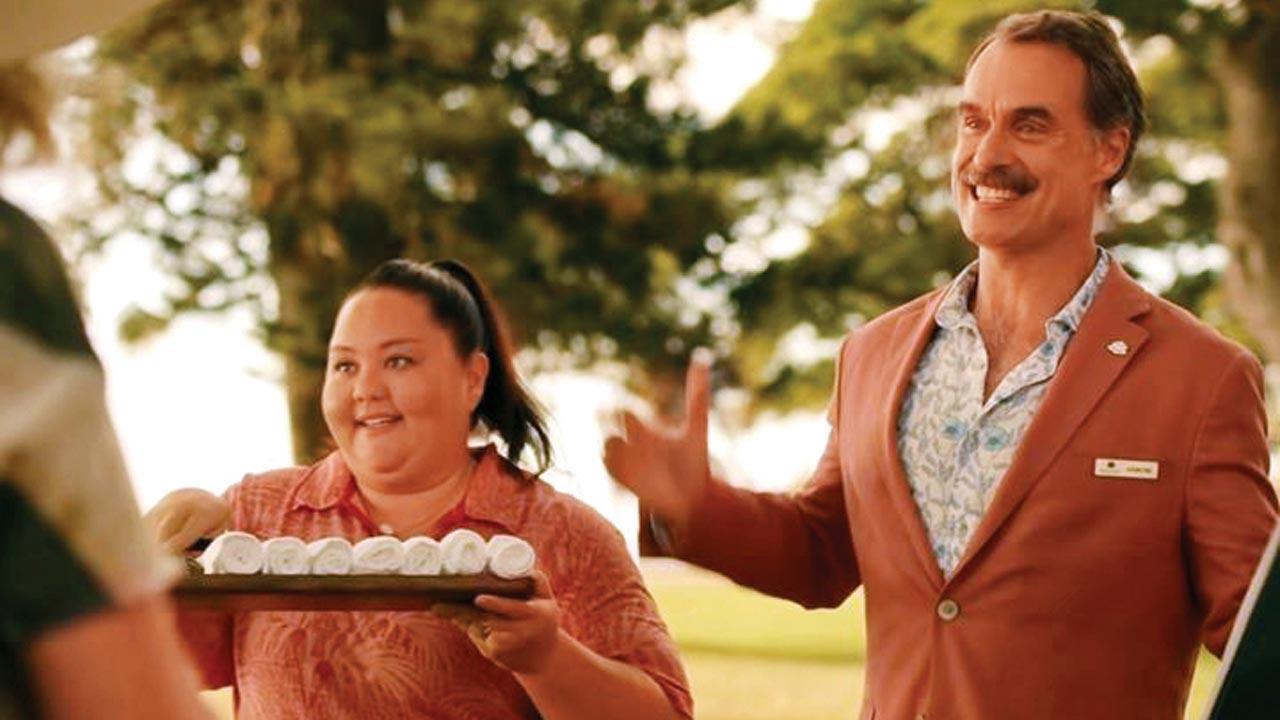Meditating on The White Lotus!
Updated On: 15 September, 2021 07:13 AM IST | Mumbai | Mayank Shekhar
Why does a show that’s entirely about privilege never make you angry? Because it is what it is!

A still from HBO’s six-part series The White Lotus
My theory about the over-done five-star hotels (in the Third World at least) is that they are temporary palaces, designed for the rich to feel like they’re kings. Capitalism being the new royalty. Technically this momentary, fleeting monarchy is democratically open to all, so long as you can pay for it—unlike palaces from the past, so it’s not all so unfair.
The White Lotus resort, on which the stupendous conversation piece for an HBO show is named is, of course, in Hawaii—and therefore not in the Third World. And yet one of the opening sequences of the six-part series (that recently dropped on Hotstar+Disney) tells you all that you wanna know about a world within a world—built for those blessed with privilege to escape from the latter.



